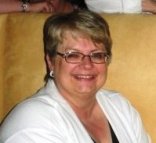Follow up information to my 15 May webinar on Developing Good Research Habits
Thank you to my readers who joined me in yesterday’s webinar Developing Good Research Habits for the Board for Certification of Genealogists on Legacy Family Tree webinars. Several inquiries (and my answers) at the end of my presentation might be of interest to others. I hope I answered everyone who contacted me by email, this blog, and on Facebook.
1. First of all, the webinar is now available free through 22 May. Click here on the webinar website and scroll down to BCG. This is my affiliate link that does produce a small commission that helps in work to produce more webinars.
2. A guide for citations
The book I mentioned and helpfully aided by Rick Sayre and Marian Pierre Louis is by Elizabeth Shown Mills. It’s a big tome, but with a great index. After a few days of crafting citations, you will be a pro at it.
Evidence Explained: Citing History Sources from Artifacts to Cyberspace. 3rd ed. Baltimore: Genealogical Publishing Company, 2015.
Also check Cyndi’s List under the category of “Citing Sources” for dozens of links to websites that deal with the topic.
2. Evernote (and One Note)
The book I mentioned is by Kerry Scott. How to Use Evernote for Genealogy: A Step‑by‑Step Guide to Organize Your Research and Boost Your Genealogy Productivity. Cincinnati: Family Tree Books, 2015.
Also check Cyndi’s List under the categories of “Evernote for Every Genealogist” and “Organizing Your Research.”
3. Legacy Family Tree webinars
Many past webinars on the website cover these topics and more. My affiliate link for subscribing is: http://legacy.familytreewebinars.com/?aid=1739.
A membership gives you access to all of the 700+ webinars and accompanying syllabus. Talk about great education!

